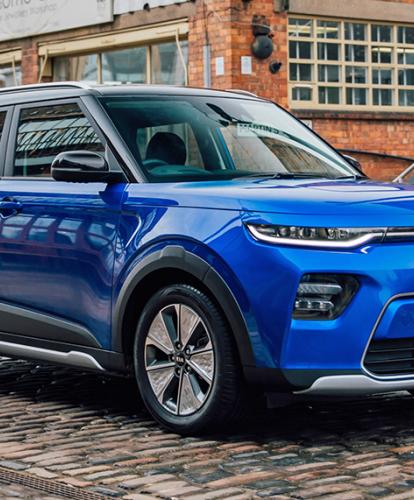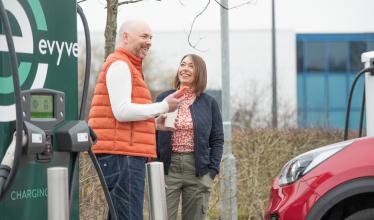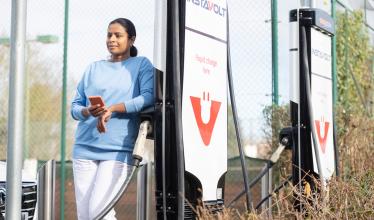Kia’s Soul EV wears one of the longest-running badges in the electric car market, and now the Korean manufacturer has released its second-generation version. Building on the success of the e-Niro, Kia’s latest Soul EV features revised styling and a significantly improved range. We test the new Kia Soul EV at its UK launch.
Kia Soul EV: what is it?
Kia’s previous Soul EV was a very capable electric car. Often overlooked in favour of the Nissan Leaf or Renault Zoe – which have both benefited from regular and significant upgrades, and are also in their second-generation – the Soul EV had a reasonable driving range and a surprising ability at long-distance travelling. A stylish crossover with plenty of practical interior space, the Soul EV has now developed into a more stylish crossover with plenty of practical interior space – though now with a far greater driving range.
Unlike the previous Soul, this version is only coming to the UK in EV form. It shares many powertrain components with the e-Niro, but looks to offer more style to proceedings at the cost of a little practicality. It’s a smaller model than the e-Niro, and will directly challenge Kia’s group stablemate Hyundai and its Kona Electric, plus the forthcoming DS 3 Crossback and Peugeot e-2008 in the compact electric crossover market.
Kia Soul EV: on the road
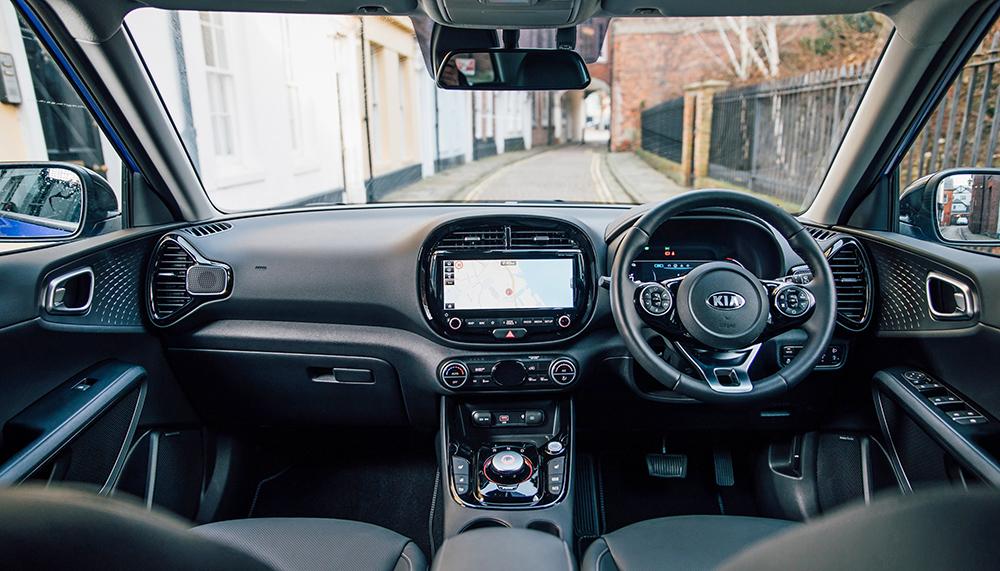
We previously drove the new Soul EV in Frankfurt last year, but this is the first chance to try the latest electric Kia on UK roads. Based around Marlow and the Chilterns, a well planned out route took in town driving, open country roads, and a tough motorway run – all in sleety/snowy conditions.
It’s a car that offers a good, solid, all-round set-up. The Soul EV tends towards being stiffer of springs than other models in its class, but the Kia doesn’t offer a rough ride. It might get unsettled over a poor patch of tarmac with a series of pot-holes and cracks in quick succession, but overall the suspension is nicely tuned.
The Leaf for example will provide a more comfortable ride, but the Soul EV has steering that is more precise and greater agility when cornering. The body roll is kept pretty much to a minimum, one benefit of a stiffer set-up, and the handling is sharp enough to excel in the tight confines of urban driving. We shouldn’t be surprised after the first-generation Soul EV, but this second version again is comfortable at motorway pace, with range not plummeting once at cruising speeds.
Kia’s Soul EV is also decent fun on a twisty open road, but the feedback on offer means it can’t be described as a true driver’s car. It’s all helped by a relatively low centre of gravity despite the car’s height, thanks to the battery being placed in the floor between the axles. A square stance and wheels pushed to each corner further aid this planted feeling, and one suspects the Kia could be good fun along your favourite route.
Clearly it excels in town, where the electric powertrain is ideally suited to life as an urban runabout. The squared-off design helps give you confidence as to exactly where the Kia sits on the road, and the Soul EV quickly begins to make a strong case for itself as Kia’s best plug-in model.
Those wanting the added practicality of the e-Niro means it would be my pick of the mass-market family EVs, but personally I have a young family and a need to prioritise boot and interior space. However, those with older kids or who don’t require as much boot space, the Soul EV drives a little better, offers much of the range and practicality of the e-Niro, and is both more stylish and compact.
Kia Soul EV: do the stats stack up?
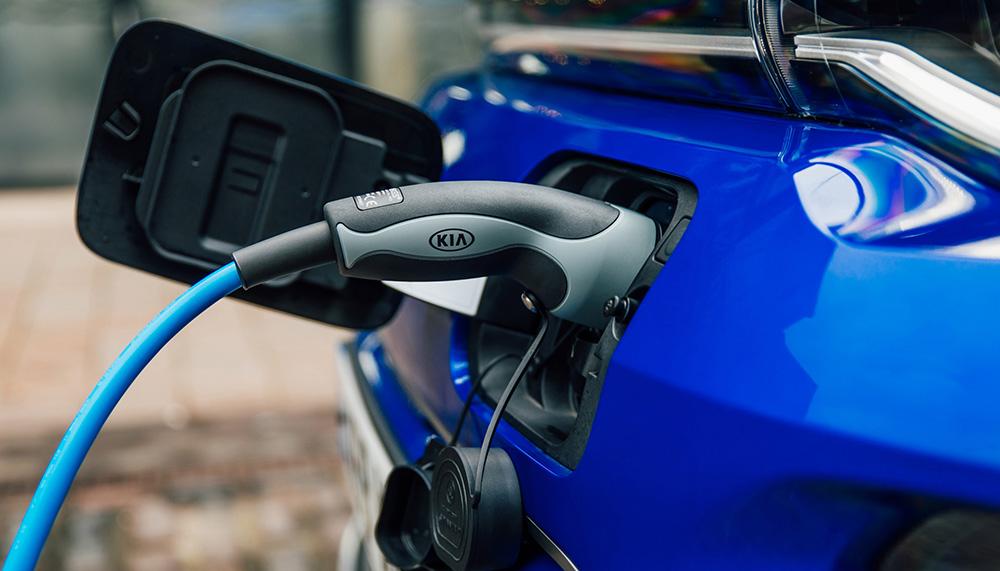
The previous Soul EV had a range of 155 miles from the mildly upgraded 30 kWh model – up from 132 miles with the original 27 kWh battery version. However, these figures were calculated on the somewhat lax NEDC test cycle, which never came close to providing an achievable real-world figure.
This model is tested to the tougher WLTP standards, and provides a figure of 280 miles on a single charge. Levelling things out, the new Soul EV has at least twice the range of the older model, which is unsurprising considering the new battery is more than twice the capacity at 64 kWh.
Like the e-Niro, Kia builds a Soul EV with a smaller capacity battery. However, also like the e-Niro, it’s not coming to the UK. Here the demand for long-range models is significant, and both Kia EVs offer serious long-distance potential at a fraction of the cost of its premium range rivals.
As with many launches, we didn’t get the chance to really push the range on the Soul EV, but even in cold and challenging conditions, the stats held up well. We reckon a range of 200-220 miles on a charge in winter would be a minimum you could expect, and for much of the time you can realistically expect a range of 250 miles on a single charge. That’s based on figures and expectations from both this UK launch and the European event last year.
We will get the Soul EV on a longer test in due course to really try out how well it will cover ground. However, having driven it twice now, and experience with all the other Hyundai Kia pure-electric models such as the e-Niro, Kona Electric, and Hyundai Ioniq Electric, we reckon we have a good handle on how the powertrain can perform.
Along with the battery size, there’s one motor available – a 150 kW unit that allows for a 0-62 mph time of 7.9 seconds. It feels a little quicker than the time might suggest thanks to the instant pull electric motors offer, and the Soul EV feels plenty sprightly enough for most situations. Even climbing hills at motorway speeds with two up front the Soul EV never struggled, though that’s something we’d expect from a car with 150 kW on tap.
Charging is possible at up to 7.2 kW on AC units via Type 2, while rapid charging using the full CCS inlet is possible at up to 100 kW. Aiding keeping time spent at charge points to a minimum is Kia’s excellent four-stage smart brake energy recuperation system. Moving from strong brake regen to nothing for coasting, it can make a real difference in driving range available, and allows for near one-pedal driving. It can also be left in ‘Auto’ or, by holding down the left hand paddle, it will bring the Soul EV to a complete stop. Finally, there are driving modes available, including Eco, Eco+, Normal, and Sport.
Kia Soul EV: is it value for money?
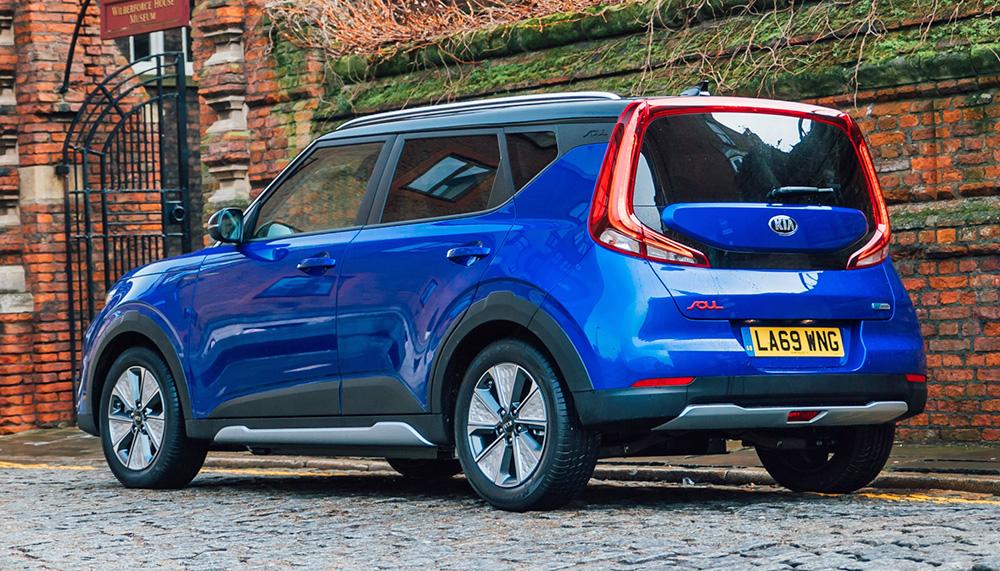
Kia has pitched the Soul EV right on par with key rivals. The single trim level available at launch costs £33,795 after UK Plug-in Car Grant (PiCG). The Kia e-Niro costs £34,495 (inc. PiCG) for a near identical range and a bit more space, whilst the 64 kWh Kona Electric starts at £35,100 (inc. PiCG), again with basically the same range but a little less space.
As such, within the confines of the Hyundai Kia group at least, it’s well positioned. Compared to other key rivals, the Leaf e+ starts at £32,795 with a tad more practicality but a range around 40 miles less than that of the Soul EV, while a comparable Zoe (the more powerful 100 kW model with 50 kW CCS rapid charging included) starts at £28,370 (inc. PiCG) also with a shorter range and less interior space. All prices listed are correct at time of publication.
As such, it’s clear the Soul EV has been carefully positioned to provide good value for money, especially considering the driving range available, performance, practicality, charging capabilities, and design.
Kia Soul EV: what’s the verdict?
The Kia Soul EV is a very good car. It costs north of £30,000 which is a barrier for some buyers, but that extra few thousand is worth it for those able to afford it. The driving range is yet to be seriously tested by us but we’re confident it will stand up to some tough tests, and the rest of the car is great.
The design is different enough to catch the eye without being so bold as to put customers off, whilst the square-ish shape means maximum interior space for its footprint is available. The cabin’s a nice place in which to sit, though not a particular strength. It’s comfortable enough though, and features Kia’s latest generation touchscreen infotainment system with Uvo connected car system – allowing for app-based checks and control over range, charging, pre-conditioning etc. Factoring in Kia’s excellent seven year warranty, the Soul EV makes a case for itself as one of the best mass-market EVs around.
